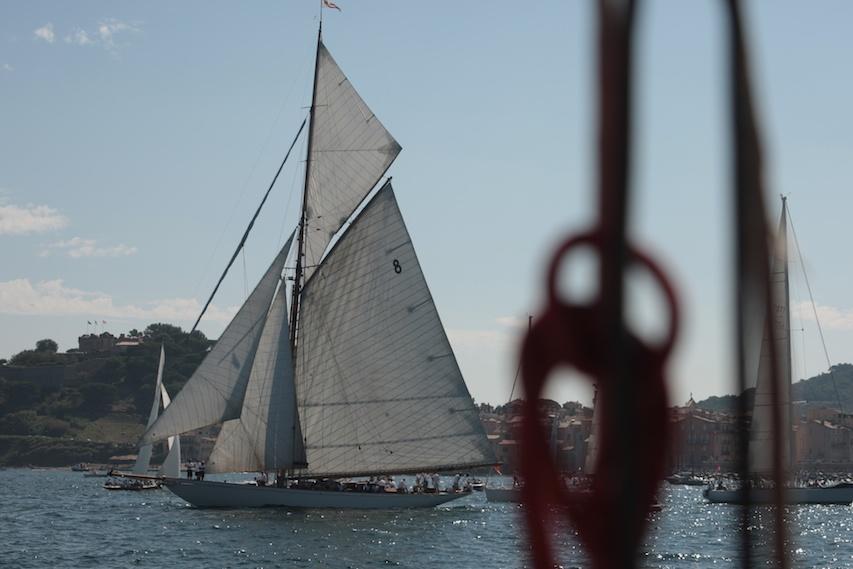
Environment and Biodiversity
Place
All the seas and oceans, France
Sponsor
Marie-Marguerite Bourbigot
Grant
500,000 € over 3 years to the Board of Administration at 2009/06/11
Project leader
Despite the importance of their role, the diversity and physiology of the many plankton species providing the basis of the oceanic ecosystems remain largely misunderstood. While satellite observation supplies data on photosynthesis activity on the ocean surface, only the studies and analyses conducted on these processes at greater depth - where this activity reaches a peak - can tell us about the diversity and distribution of the plankton species in order to preserve them better.
This is the reason for the scientific program conducted by Tara Oceans, initiated by the Tara Foundation, with the support of Agnès b, the Brittany regional authority and the French National Research Agency.
Having already completed seven historic expeditions in the Arctic and Antarctic, in Patagonia, Greenland and South Georgia, the polar schooner which already carried the scientists to drift across the ice-pack for 507 days, will sail from Lorient next September, for a three-year odyssey covering over 150,000 kilometers on all seas of the globe.
On board the "Tara", 22 multidisciplinary scientists, from 10 countries, will spell one another to cover more than 12 areas of basic research
Research in physics, biology, genomics, taxonomy and oceanography will be aimed to model the impact of climate change on the oceans. This will help generate a unique archive bank, accessible to the entire scientific community, thanks in particular to the combination of conventional taxonomy with new 3D cell imaging systems.
This expedition, unprecedented and innovative, involving more than 500 scientists and a network of some fifty international laboratories and institutes, will also contain a major component of international school and extra school awareness and education, based on a multimedia educational platform, activated by a network of associations.
(On France 3 TV, Thalassa has already picked Tara Oceans as the guiding thread of the 2009-2010 season).
Tara Oceans, a journey to the sources of biodiversity
For three years, the Tara expedition vessel travelled the seas and the oceans to collect valuable data for the study of how marine ecosystems operate and their role in Earth's ecological equilibrium.
The Tara expedition has been launched to study all marine micro-organisms but also the characteristics of their environment. Then theTara expedition vessel travelled 115,000 kilometers. And over 27,000 micro-organism and coral reef samples have been collected.
Over and above its scientific mission, the Tara Oceans team has also taken on an educational challenge. A major international program to build awareness and educate schoolchildren and others, based on a multimedia platform and coordinated by a network of non-profit organizations, was conducted on the theme of protecting the oceans. Presentations and conferences were organized in ports of call, notably in Rio de Janeiro during the 2012 Earth Summit, when 5,000 children were given the opportunity to climb aboard the schooner Tara.
A unique treasure trove
The Tara Oceans project was conceived to advance research. Work is now continuing in the laboratory, where the samples collected will be studied.
The Tara Oceans expedition has opened the way to a major program of collaborative research, the Oceanomics project(1). Launched on 21 March 2013 and winner of the "Biotechnology and Bioresources" section of the government Investments for the Future(2) program, it will make it possible to build up a base of morphogenetic and eco-system data from these plankton samples.
"The Oceanomics project will first of all explore this unique collection using DNA sequencing and very high-speed imaging techniques to allow scientists to understand what plankton organisms are, study their genes and their genome and find out how they organize themselves asa function of environmental parameters," explains Colomban de Vargas, coordinator of Oceanomics.
This in-depth knowledge of the functional biodiversity of plankton all over the world will then be transferred to more targeted studies invarious fields of application: biofuels, pharmaceuticals, etc.
Veolia Environnement Research and Innovation (VERI) will participate in this second, long-haul adventure - five to ten years of research - by helping transfer plankton marine bioresources to companies able to exploit them.
---
(1) WOrld oCEAN biOresources, biotechnology and earth-systeM servICeS.
(2) The government Investments for the Future program aims to foster innovation and competitiveness in higher education and research in France
Three years of research in all the seas and oceans of the globe to model climate change and its impact on our biosphere
Key figures:
- A three years expedition.
- 115,000 kilometers travelled.
- 153 sampling and physical-chemical parameter measuring stations.
- Over 27,000 micro-organism and coral reef samples collected.
- 22 scientists from 10 countries representing more than 12 fundamental research disciplines.
- Over 500 scientists monitoring the expedition and a network of around 50 laboratories and international institutes.
OTHER PROJECTS SUPPORTED
- Tara Mediterranean (2014) : Destination the Mediterranean to investigate the impact of plastics on the ecosystem.
- Tara Pacific (2015-2018) : Focus on coral reefs with the aim of furthering understanding of their evolution in the face of climate change and the ecological disruptions taking place on our planet.

